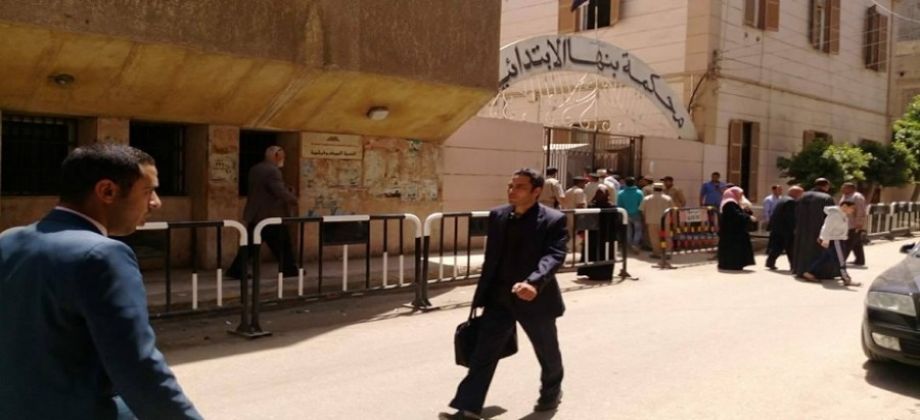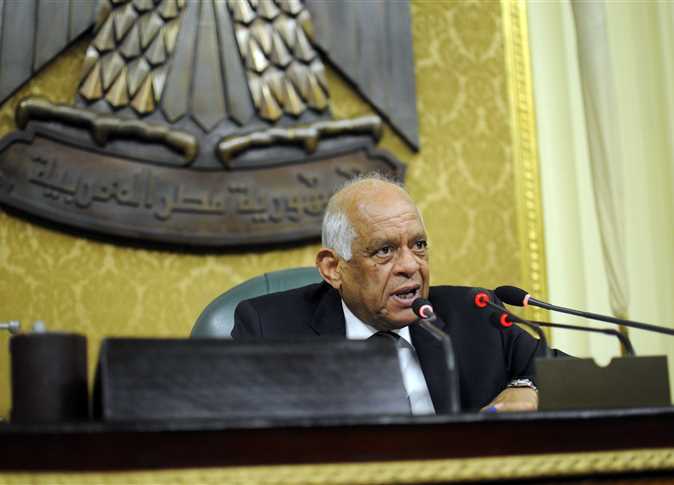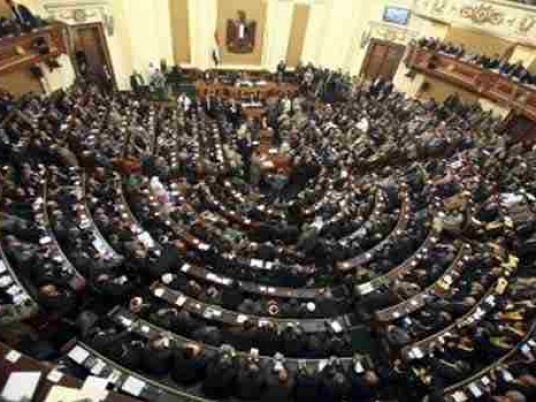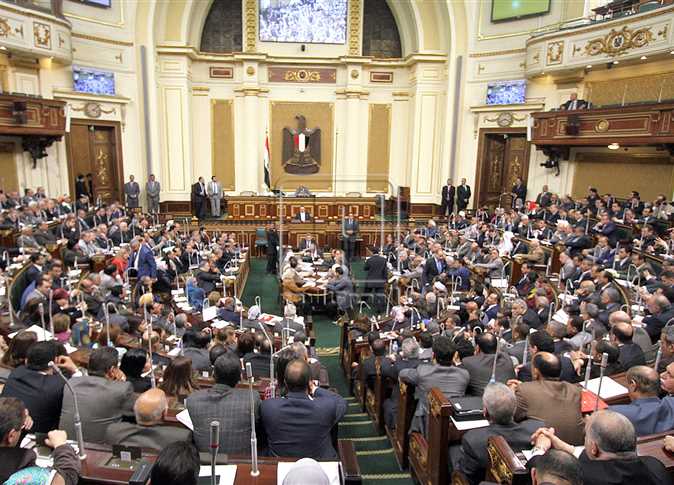An Egyptian prosecutor has ordered the arrest of two prominent activists for inciting protests, a source in the prosecutor's office said on Wednesday, including one whose group helped lead the popular uprising that ousted Hosni Mubarak in 2011.
The arrests of Ahmed Maher, head of the April 6 youth movement, and Alaa Abdel Fattah – both symbols of the revolt – were ordered after they took part in demonstrations outside parliament on Tuesday defying a new law restricting protests.
Security troops forcibly dispersed a protest staged outside the Shura Council building on Qasr al-Aini street, where the 50-member Constituent Assembly tasked with amending the constitution convenes.
Protesters were demonstrating against keeping an article permitting civilians to be tried before military trials within the draft constitution, which will be put to referendum next month.
Security forces used a water hose to disperse protesters, who ran away down Qasr al-Aini street and towards the Nile Corniche, where protests reconvened on Talaat Harb Square. Teargas was repeatedly used on Tuesday evening with further arrests made.
Twenty-four other activists were detained on Tuesday for four days pending investigation of allegations of thuggery, attacking public employees, stealing wireless devices and protesting without permission from the Interior Ministry, said the source.
Four female activists who were detained were released along a desert highway, said a security source.
The new law, passed by the army-backed government on Sunday, has angered some Egyptians and drawn fire from human rights groups who describe it as a major blow to freedom in the most populous Arab country.
Interim President Adly Mansour ratified the bill which bans public gatherings of more than 10 people without prior permission.
Egypt has experienced some of its worst civilian violence in decades after the army, prompted by mass protests, ousted the country's first democratically elected leader, Islamist Mohamed Morsy, in July. It has since introduced a political roadmap meant to lead to new elections next year.
Liberals and activists, who backed Mursi's overthrow, are now becoming more vocal against the military, which has backed a security crackdown against Islamists.
Hundreds have been killed and more than 2,000 arrested, including Morsy and the leadership of his Muslim Brotherhood group, which won every election since Mubarak's downfall.
Pro-democracy activists have called for new demonstrations in central Cairo on Wednesday to focus attention on the law.
The government has said it is not opposed to peaceful protests and it wants to restore order in Egypt, which has a peace treaty with Israel and is home to the Suez Canal.
The law will further squeeze the Brotherhood, which hoped mass protests would reverse what it calls a military coup.
The restrictions have triggered a public debate in Egypt, where demonstrations brought down Mubarak and encouraged army chief General Abdel Fattah al-Sisi to remove Morsy.
"This law is bad and the minister of interior has done enough and should change," said an engineer on a call to state radio.
"Our penal law had many articles that they (the authorities) could have used to ban violent protests but instead they issued a new law that only brought us more protests and tension, a very stupid call."
The next person to dial in, a police officer, said: "What do people want? We either implement the law or not."




